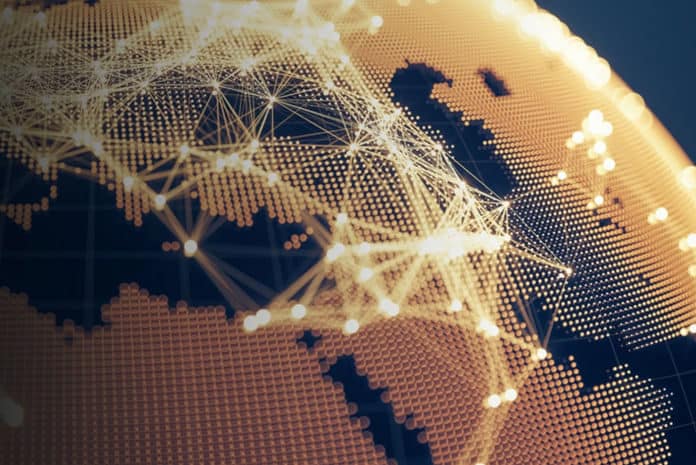The Huawei APAC Digital Innovation Congress, jointly held by Huawei and the ASEAN Foundation, begins, gathering over 1,500 government officials, experts, researchers, partners, and analysts from more than 10 countries in the Asia-Pacific region. The congress explores the future of digital innovation and the digital economy. Topics included ongoing advancements in ICT, speeding up digital transformation across industries, as well as green and low-carbon development.
“The Asia-Pacific region is one of the most culturally and economically vibrant regions in the world,” said Ken Hu, Huawei’s Rotating Chairman, during his opening speech. “It has long played an important role in global economic growth, and now plays an equally important role in digital innovation,” he continued, citing the fact that many APAC countries have elevated digital transformation to a strategic policy level and are actively going green.
Ken Hu, Huawei’s Rotating Chairman, speaking at Huawei APAC Digital Innovation Congress 2022, said, “Huawei has deep roots in APAC. We have been serving our customers here for over 30 years, and we are proud to support digital development in the region. Moving forward, we will keep investing heavily in innovation to help our partners in the region meet their strategic development goals. In 2022, we will increase our support for a Green and Digital APAC by promoting digital infrastructure, low-carbon development, and digital inclusion.”
Yang Mee Eng, Executive Director of the ASEAN Foundation, also spoke at the event. “The Huawei APAC Digital Innovation Congress 2022 marks another critical milestone in the ASEAN Foundation-Huawei partnership to continue creating a talent development-focused learning ecosystem that will help address the digital skills shortage in the region.”
Other guest speakers included Satvinder Singh, Deputy Secretary-General for ASEAN Economic Community; Ajarin Pattanapanchai, Permanent Secretary of Thailand’s Ministry of Digital Economy and Society; Dr. H. Sandiaga Salahuddin Uno, BBA, MBA, Indonesia’s Minister of Tourism and Creative Economy; Dato’ Sri Dr. Adham Bin Baba, Malaysia’s Minister of Science, Technology and Innovation; and Mustafa Jabbar, Bangladesh’s Minister of Posts and Telecommunications. Each speaker shared their goals and prospects for the future of digital transformation, and gave insight into how top-level digital strategy has helped shape the digital economy in their own countries – and in ASEAN as a whole.
Simon Lin, President of Huawei’s Asia Pacific Region, gave a speech on the abundance of digital opportunities in APAC. He spoke about the company’s mission, “In Asia-Pacific, for Asia-Pacific”, under which Huawei is committed to becoming a key contributor to the digital economy in Asia-Pacific, and working with its customers and partners to build a better green digital life.
Lin said, “Huawei hopes to help Asia-Pacific build a leading and green infrastructure, create a thriving industry ecosystem, and empower an inclusive and sustainable Asia-Pacific.”
According to Lin, Huawei has provided connectivity for more than 90 million households and one billion mobile users in Asia-Pacific. Huawei’s IaaS market share ranks No. 4 in the emerging Asia-Pacific market, and Huawei is integrating digital and power electronics technologies to enable energy digitalization for a greener future.
In Asia-Pacific, Huawei has established partnerships with nearly 10,000 enterprise and cloud partners and plans to invest US$100 million in the Spark startup ecosystem. Together with its partners, Huawei has trained 170,000 locals on digital skills, and plans to provide digital training to another 500,000 within five years as part of its efforts to develop a talent ecosystem that can drive the digital economy forward.














